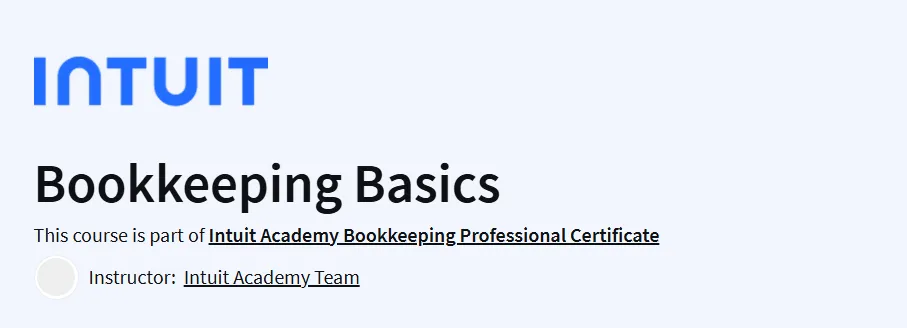What you will learn in Bookkeeping Basics Course
Understand the role of a bookkeeper and the daily tasks involved in maintaining financial records.
Learn fundamental accounting concepts, including the accounting equation and double-entry bookkeeping.
Explore the accounting cycle, focusing on journal entries, ledgers, and trial balances.
Gain skills to prepare key financial statements, such as the balance sheet and income statement.
Recognize the ethical and social responsibilities of bookkeepers in ensuring the integrity of financial information.
Program Overview
Accounting Concepts and Measurement
⏳ Approximately 3 hours
Introduction to the role of a bookkeeper and the basics of accounting.
Understanding the accounting equation and the double-entry system.
Exploring common accounting terminology and concepts.
The Accounting Cycle
⏳ 3 hours
Learning how to record transactions in journals.
Posting journal entries to ledgers.
Preparing trial balances and adjusting entries.
Financial Statements
⏳ 3 hours
Understanding the components of financial statements.
Preparing balance sheets and income statements.
Analyzing financial statements for accuracy and completeness.
Ethics and Professionalism in Bookkeeping
⏳ 3 hours
Discussing the ethical responsibilities of bookkeepers.
Understanding the importance of accuracy and integrity in financial reporting.
Learning about professional conduct and standards in bookkeeping.
Get certificate
Job Outlook
Proficiency in bookkeeping is valuable for roles such as Bookkeeper, Accounting Clerk, and Financial Assistant.
Skills acquired in this course are applicable across various industries, including finance, healthcare, and retail.
Completing this course can enhance your qualifications for positions that require expertise in maintaining financial records and preparing financial statements.
Specification: Bookkeeping Basics
|
FAQs
- Learn how to record business transactions
- Understand assets, liabilities, and equity
- Covers balance sheets and income statements
- Foundation for accounting and finance careers
- Absolute beginners in finance
- Entrepreneurs and business owners
- Aspiring accountants and bookkeepers
- Students preparing for finance courses
- Recording and categorizing transactions
- Creating journal entries and ledgers
- Preparing financial statements
- Managing accounts payable/receivable
- Step-by-step exercises
- Sample financial documents
- Real business case studies
- Practice with ledgers and statements
- Build a strong financial foundation
- Better manage personal or business finances
- Opens entry-level finance job opportunities
- Supports long-term business success





